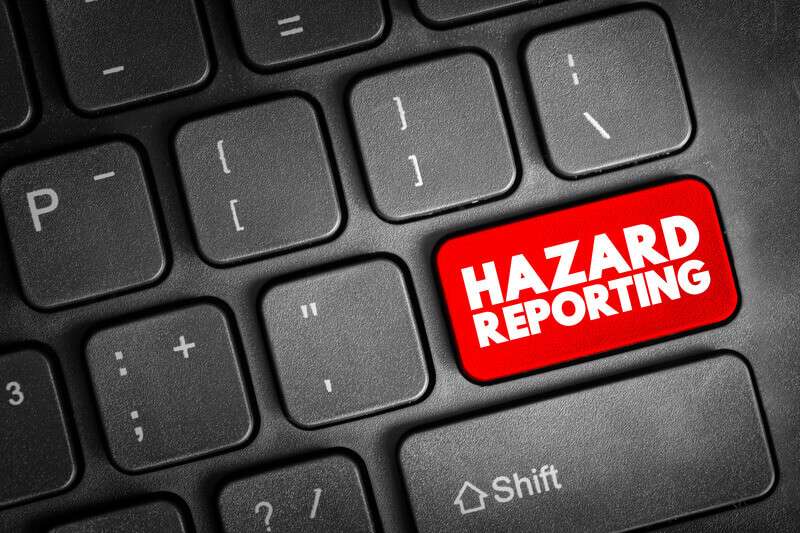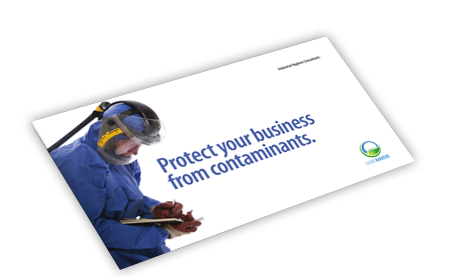Industrial hygiene is a process that recognizes, evaluates, and controls hazardous conditions in the workplace that may impact employees’ health. It’s important because it protects employees from injuries and illnesses like repetitive stress injuries, hearing loss, poisoning, respiratory conditions, skin diseases, and fatal illnesses.
For instance, exposure to toxic chemicals and contaminated air can cause respiratory conditions, skin diseases, and nonfatal or fatal illnesses like chronic bronchitis, pneumonitis, and asbestosis. Meanwhile, repetitive stress injuries occur frequently due to doing the same motion, leading to joint and bone problems. Also, when companies expose employees to loud, high-frequency noise, hearing loss can occur.
When employees get sick or injured, it affects their productivity, which can lead to lower profits for the company. Workplace injuries and illnesses can also affect morale and create a sense of fear among employees.
To ensure safety, companies must implement industrial hygiene programs and practices. They must hire an industrial hygienist trained to identify, analyze, and control workplace conditions. While OSHA regulates industrial hygiene through standards, companies must hire their own experts to ensure employee safety and business continuity.
Types Of Hazards
Industrial hygienists partner with companies to discover and mitigate potential safety hazards in the work areas. These may include:
– Airborne pollutants, such as aerosols and fibers
– Biological hazards, such as bacteria and viruses
– Chemical dangers, such as harmful vapors and fumes
– Ergonomic threats, such as lifting heavy objects or working with large machinery
– Physical hazards, such as radiation and heat
Identifying and tackling these hazards are key to ensuring a safe working environment.
RELATED: What Is Industrial Hygiene?

Occupational Health and Safety Services

Why Industrial Hygiene Is Important
Industrial Hygiene is significant in protecting employees from various kinds of occupational injuries and illnesses. It focuses on identifying, evaluating, and controlling the hazards that arise in the workplace environment. By doing so, it helps sustain a safe and healthy working environment.
Industrial hygiene protects workers from nonfatal illnesses like skin, lung, and gastrointestinal diseases that frequently occur due to occupational hazards in industries like agriculture, medical fields, and laboratories. It prevents the spread of diseases like anthrax and hepatitis B and C from one worker to another.
It also prevents respiratory conditions like chronic bronchitis, asbestosis, and pneumonitis in industries like mining, where dust inhalation is common. Industrial hygiene mandates the use of personal protective equipment to prevent respiratory problems and improve working conditions.
Skin diseases like dermatitis, eczema, rashes, and blisters frequently occur in industries that deal with hazardous chemicals. Industrial hygiene mandates the use of PPE and provides guidelines for properly using, storing, and labeling chemicals in the workplace.
Worker poisoning is another significant concern, which occurs when employees inadvertently ingest toxic chemicals like pesticides, herbicides, formaldehyde, or cleaning agents or absorb them through their skin. Industrial hygiene mandates properly using, labeling, and storing poisons to prevent such cases.
Hearing loss is frequent in workplaces with high-decibel sounds. Industrial hygiene can help by mandating personal protective equipment, measuring hazards with sound level meters, and offering workplace noise exposure guidelines.
Finally, Industrial hygiene also focuses on preventing repetitive stress injuries. These injuries occur when employees perform the same motions repeatedly during the workday. Industrial hygiene offers guidelines for correct posture and lifting techniques, and mandates breaks for employees engaged in repetitive tasks to prevent these injuries.
Role Of An Industrial Hygienist
Industrial hygienists are responsible for ensuring that employees remain safe and healthy while on the job. They are highly skilled in identifying, evaluating, and controlling hazardous conditions at work. In fact, more than 40% of occupational health and safety compliance officers who perform workplace inspections are industrial hygienists. These professionals play a critical role in developing and implementing safety and health regulations by evaluating employees’ exposure to hazardous conditions and recommending necessary control strategies.

As part of their consultation process, industrial hygienists focus on identifying workplace hazards and providing guidance on mitigating these risks. Through careful evaluation and analysis, they can pinpoint specific conditions, such as harmful chemical exposure or noise pollution, that may pose a danger to workers. By working closely with employers, they can develop effective strategies for controlling these hazards and reducing the risk of workplace injuries and illnesses.

The Benefits Of Utilizing An Industrial Hygienest
Industrial hygiene is a scientific approach to health and safety that is beneficial for any workplace because it helps reduce risks of exposure and injury. An industrial hygienist evaluates numerous factors to identify and mitigate hazardous conditions.
Regardless of a company’s size or industry, safety is a concern for every organization. Although it’s impossible to eliminate every risk, an industrial hygienist is one of the most effective ways to minimize them. Working with an industrial hygienist can mitigate risks, reduce injuries and make your workplace safer for everyone.
Healthcare Cost Savings
High healthcare costs can weigh down a business in a high-risk industry due to employee illness and injuries. Physically demanding tasks and heavy material handling, in particular, can lead to costly disabling injuries. These incidents result in increased insurance premiums and expensive healthcare packages. By investing in industrial hygiene, businesses can create a safer environment, reducing the risk of such injuries and cutting short-term and long-term healthcare costs.
Increase In Productivity
An employee’s productivity isn’t just affected by their individual factors but also by the conditions of their job, their work environment, and their treatment. When people work in dirty or unsafe settings, it increases their risk and makes them anxious and tired. It also causes distraction and increases stress levels. In contrast, workers in heavy industry have reported increased morale and reduced stress when a supportive workplace provides a clean environment, flexible work conditions, safe working areas, and managers who provide positive support. Companies can improve productivity by working to achieve these outcomes through industrial hygiene measures.
Lower Employee Turnover
Reducing occupational illness and injury can significantly lower costs for employers. Beyond medical expenses, there are additional costs associated with replacing workers. These costs include finding qualified candidates, vetting applicants, conducting interviews, onboarding, and training new hires. Productivity can also be impacted as new workers familiarize themselves with the tasks and environment.
These costs are even more significant when employers require specialized skills or certification for the position. Implementing sound industrial hygiene practices can reduce the need for temporary or permanent replacements of employees and lead to long-term cost savings.
EnviroMavens: Industrial Hygienists
When it comes to ensuring the health and safety of customers and employees in any physical environment, it’s important to trust the experts. Our full-service industrial hygiene, asbestos, and microbial abatement organization comes in here. Our dedicated team of industrial hygiene consultants has a wealth of experience and knowledge backed up by multiple independent and peer-reviewed studies and certifications. We’re committed to delivering exceptional results and providing our clients peace of mind knowing their environment is safe and healthy. So whether you’re dealing with asbestos, mold, or any other environmental concerns, you can count on us to provide reliable, effective solutions.
 Visit the EnviroMavens booth #46 at the
Visit the EnviroMavens booth #46 at the



